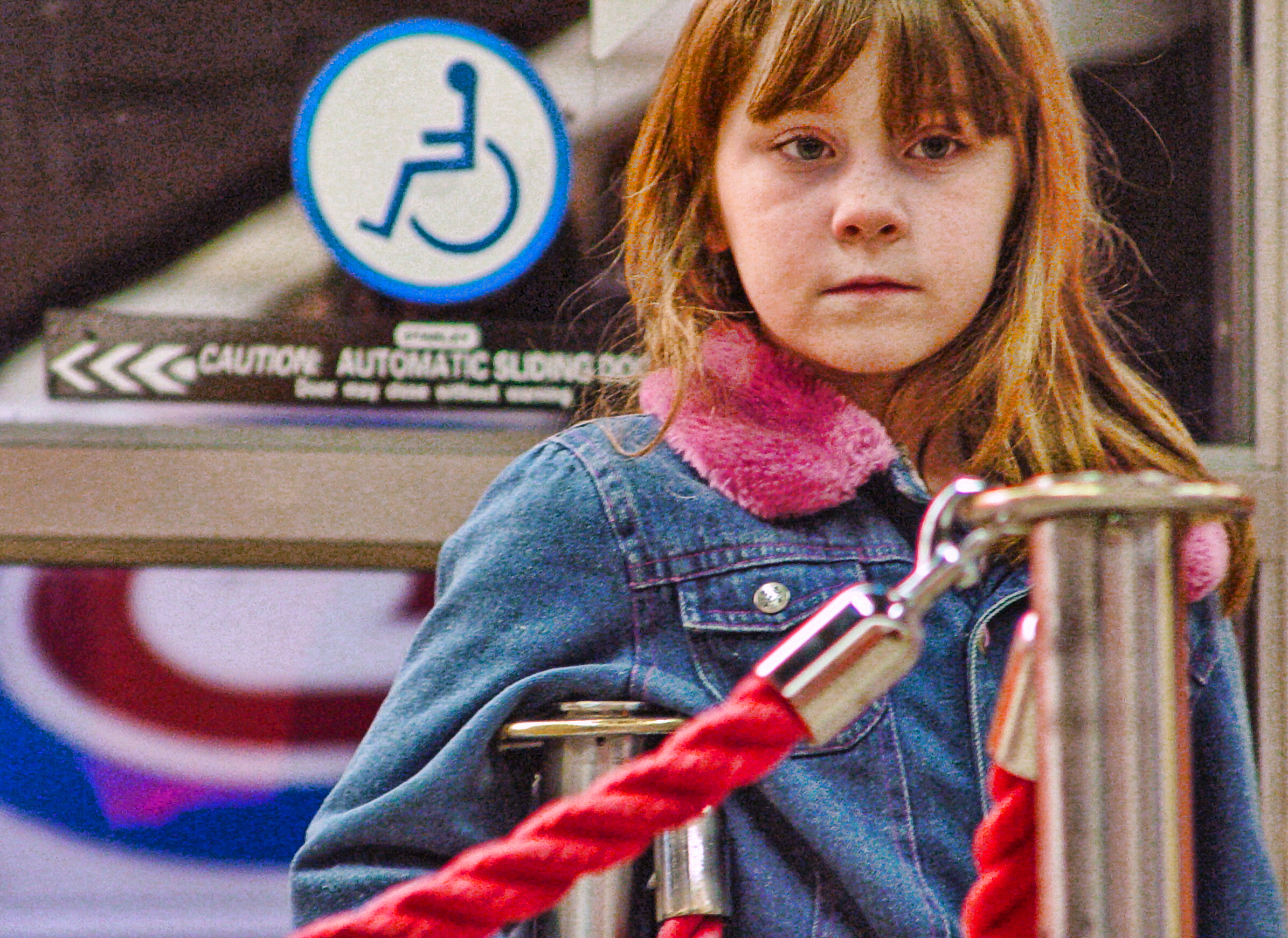
Image by Jenn Rhubright
She had a serpent tattooed on her left bicep and below her collarbone the red emblem from “The Queen of Pain,” which, she explained, was a song by The Alkaline Trio.
He was having his hair cut at the beauty school, where she was studying to be a stylist. His daughter would be about her age. He’d been grinding his teeth in his sleep the past two nights. His jaw hurt.
“Your hair is very healthy,” Shawna said. She fanned it out at the sides.
“Thank you,” he said, but he did not know if that was the right response. He wondered if her parents liked those tattoos.
“We’re all the same.” She looked around at the customers and the stylists and tapped her comb in her hand. “I wanted to be different. I wanted to study art at the Chicago Art Institute.” She combed his hair and parted it into sections.
“That’s got to be expensive. Maybe an art school in Minneapolis?” He massaged his jaw. “My daughter studied art.”
“The Art Institute costs thousands of dollars.” Shawna pulled on the bottom of her shirt as if it were sticking to her, but the room was air-conditioned. “I told myself that I don’t need a piece of paper saying I’m an artist.” She put clips in his hair. “I can just make my art.”
He and his daughter argued about communication, how they couldn’t talk. Shawna had disclosed so much about herself that he felt he should tell her about himself. “A long time ago, I studied art–commercial art, not fine art. But I stopped when I saw I couldn’t be as good an artist as I wanted to be.”
She laughed. “No wonder–with an attitude like that.” She seemed unafraid to be direct. Her eyes were honest.
“I’m an English teacher now. I teach at Bishop High School.” His daughter had objected to going to the same school, being the daughter of a teacher, but in college, she was fine.
Shawna picked up the scissors. “I loved English. I had a teacher who hated me. I wasn’t disrespectful, never skipped class, but she was always giving me detention. She blamed me when someone stole my book.” Shawna snipped the hair in back lightly. “I had to pay for it.”
“You probably reminded her of someone she hated or someone she loved once.” He bowed his head down. His jaw ached. “It was not your fault.”
“One good thing came out of it: I enrolled in the skills program, where you go to school only two-and-a-half hours a day and work on your own for the rest of the day. I loved that. So I guess I got one good thing out of her.” Her scissors worked on the right side of his face. “Is this your first time here?”
“My regular barber is out of town, and I had to get a haircut.” Mostly it was women here, but there was one college-age kid at the station at the end.
“A special occasion?”
“Yes.”
Shawna told him that her brother had a full scholarship at the technical college, but he went two weeks and stopped going. She just hoped he would get a job. Their house was in foreclosure. Her mother broke up with her boyfriend. “She always picks losers. This one was an alcoholic. She woke up in the middle of the night, and he was sitting in a chair with a gun in his lap. That scared her. But with him gone, she can’t pay the mortgage. She’s been in bankruptcy once already. It’ll ruin her credit rating.”
“That happened to my brother-in-law.” He bent his head forward, so she could shave his neck. He felt only slightly dizzy, considering how little sleep he had gotten.
She fluffed his hair out and turned his chair to the mirror. “How do you like it?”
“Fine, fine.” But no, it was not fine. His daughter was the same age as Shawna. He wanted to tell her.
She smiled into the mirror, her eyes open and leaf-colored. “What’s the occasion?”
He could not catch his breath. “A funeral.”
“Oh, I’m sorry. I didn’t mean to pry.” She put the comb down and stepped back. She cupped one hand in the other and waited.
“My daughter. She died. A car accident.” He poured out Miranda’s whole life, her aspirations and virtues and death. “When she was little she wanted to be an astronaut. Her teachers loved her. She painted with acrylics and sang in the school chorus. We used to fight. We were almost to the end of the fighting stage.” The chair tilted. He felt stones in his throat. He remembered her voice. The cold air pierced his lungs. He wiped his eyes with his handkerchief.
She watched quietly and nodded as though she understood.
Cezarija Abartis’ Nice Girls and Other Stories was published by New Rivers Press. Her stories have appeared in Brain Harvest, Underground Voices, Liquid Imagination, Story Quarterly, and New York Tyrant (which also gave her story The Lidano Fiction Award). Recently she completed a novel, a thriller. She teaches at St. Cloud State University.
Read our interview with Cezarija here.
